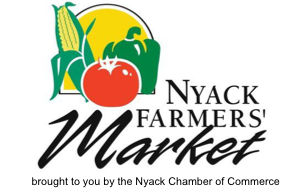Dines Farms has been using natural farming techniques to raise poultry and pork on their 130 acres of farmland in the northern Catskills since 1984. Although Jay Dines trained to be a plumber, farming had always been a hobby for him going back to his childhood in Eastern Long Island. After an injury prevented him for continuing his trade, Dines converted what was once a vacation home into a full-time farm.
“My goal has always been to raise meat that is free of chemicals, steroids and artificial preservatives,” said Dines. His appreciation for natural farming began in Texas, where he attended an agricultural course in Austin after being honorably discharged from the United States Navy. Back then, before the wide spread use of chemicals and genetically modified seeds, “natural farming wasn’t a fad, it was how everyone’s food was produced,” Dines recalled.
Dines makes a careful distinction between natural and organic farming. He complains the cost of having an official organic certification is too expensive for the small farmer and the consumer. “Some places want as much as $9 a pound for their organic chicken. I sell my naturally grown chicken for $3.95 a pound, and its just as wholesome,” said Dines.
With a list of customers that includes one of the pioneers in health food movement like the Park Slope Food Coop, Dines seems to be able to meet the highest standards at modest prices. Dines also offers eggs, bacon, and their popular chicken sausage.
The difference between Dines’ natural farming methods and the supermarket alternative: factory-produced poultry is vast. Using steroids, mass produced chickens are raised and slaughtered in three to four weeks. The birds live their short lives in crowded metal sheds where they never see the light of day. Dines chickens are free range, meaning they are outside when weather permits, and are raised in 12 to 15 weeks. His animals are not exposed to antibiotics, steroids or pesticides.
Even though the demand of locally produced, chemical free food is growing, the difficulties that face family farm are also rising. From the price of gas to unseasonal weather, the small New York State farmer is on the endangered business list. “When I started out there were almost 30 farms in Greene County, NY. Now there are four.”
While the northeast struggles to recover from Hurricane Sandy, Dines is still waiting for relief from small business and farming assistance programs to respond to the devastation caused by Hurricane Irene in October 2011. Inspectors from First Pioneer Farm Credit, a program administered by the United Way and funded by the Department of Agriculture, made their first visit to Dine’s earlier this month.
Some of the forces that threaten the family farm, like competition from agribusiness and global climate change are outside of our control. But how we spend our food budget can have a positive impact on our health and the fortunes of one of the remaining farms in Greene County.
 Read about food and healthy eating in Eats of Eden, sponsored by the Nyack Farmer’s Market and the Nyack Chamber of Commerce. The Nyack Farmers’ Market will continue through the winter on Thursdays from 8a-2p in their new indoor location at Nyack Center at the corner of Depew Avenue and South Broadway.
Read about food and healthy eating in Eats of Eden, sponsored by the Nyack Farmer’s Market and the Nyack Chamber of Commerce. The Nyack Farmers’ Market will continue through the winter on Thursdays from 8a-2p in their new indoor location at Nyack Center at the corner of Depew Avenue and South Broadway.









